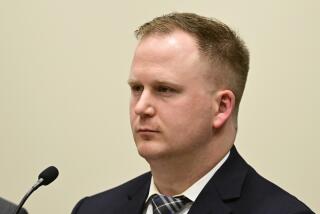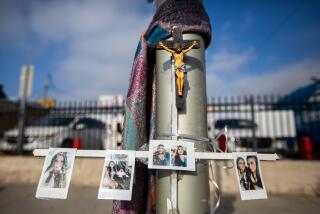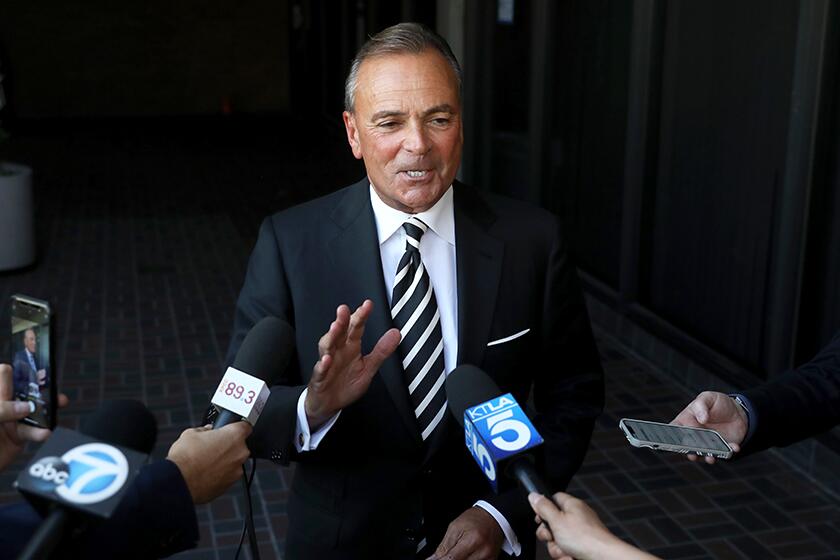Murder Charge Is Upheld
- Share via
A Ventura woman who accused authorities of deception and coercion will stand trial on murder charges for allegedly helping two skinhead gang members kill a teenage girl in 1998.
Superior Court Judge Vincent J. O’Neill Jr. ruled Tuesday that evidence presented at a preliminary hearing suggests Bridget Callahan stood guard while skinheads David Ziesmer and Michael Bridgeford stabbed 17-year-old Nichole Hendrix to death in a motel bathroom.
Callahan, 30, Ziesmer, 29, and Bridgeford, 25, all face charges of first-degree murder and special allegations that they killed Hendrix during a robbery and kidnapping.
Callahan’s lawyer sought to have the charges against her dismissed, arguing that authorities led her to believe she would not be prosecuted if she provided details of the slaying.
O’Neill denied the defense motion, finding there was no misconduct and no legal basis for the request. The judge further noted that courts have found nothing unconstitutional about police deception.
“Even assuming an ethical lapse,” the judge wrote, “it was not such as to merit the release of an accused murderer without trial.”
Defense attorney Joseph O’Neill, no relation to the judge, further argued that Callahan’s statements were coerced and should not be used against her.
But in his 10-page ruling, Judge O’Neill concluded that Callahan voluntarily offered information about the October 1998 slaying.
The judge found no evidence of coercion nor of improper law enforcement tactics. He ruled that Callahan’s Dec. 22, 1999, statement about the Hendrix killing could be used against her at trial.
He did suppress her statements after that date, however.
He concluded that a written agreement crafted by a supervisor in the district attorney’s office, and signed by Callahan, implied a promise of immunity.
The Dec. 22 letter states in part that Callahan, who worked as an informant, would not begin to assist authorities until they were satisfied her statements were truthful and that she was “not a suspect.”
During the preliminary hearing, Senior Deputy Dist. Atty. Ron Bamieh testified that authorities knew right after Callahan gave her statement that she was a suspect. Yet supervisors in his office told him to allow detectives to “work” her as an informant despite her culpability, he testified.
In his ruling, O’Neill found that, based on the agreement, Callahan was entitled to assume that she could cooperate without jeopardizing her legal position.
“Accordingly, it would be fundamentally unfair for any of her statements, actions, or the fruits of her statements or actions to be used as evidence against her in a homicide prosecution,” the judge wrote.
Callahan was ordered back to court on Aug. 6, at which time a trial date is expected to be set.
Attorneys for both sides praised Tuesday’s ruling.
“While we don’t agree with every single line, we thought it was reasonable and thoughtful,” said state Deputy Atty. Gen. Michael Katz, whose office took over prosecuting the case at the request of the district attorney.
Joseph O’Neill said the ruling supports his claim that prosecutors used deceitful tactics.
“It’s a slap in the face to their office,” he said.
But Bamieh said the decision supports his earlier assertion that he and detectives acted properly.
“I knew from the very beginning that everything we did was ethical and legal,” he said.
More to Read
Sign up for Essential California
The most important California stories and recommendations in your inbox every morning.
You may occasionally receive promotional content from the Los Angeles Times.










